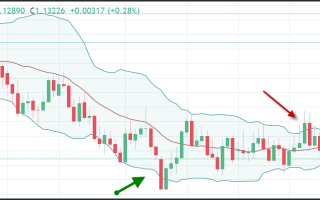At first glance, today’s social trends seem to promise progress—more freedom, more equality, more open-mindedness. Scroll through your feed, and you’ll see hashtags celebrating empowerment, self-expression, and inclusivity. But dig a little deeper, and some of these “forward-thinking” movements start to look suspiciously backward.
It’s the paradox of modern culture: we champion ideas that sound enlightened but often circle right back to the problems they were supposed to solve.
1. Hustle Culture Disguised as Empowerment
Once upon a time, “hustle” meant ambition—a badge of honor for the go-getters. Now, it’s an endless cycle of burnout disguised as self-empowerment. Social media tells us that working twelve-hour days and juggling side gigs is noble, even glamorous. But what’s being sold as “freedom” is often just overwork wrapped in motivational quotes. True progress would mean redefining success around balance and well-being, not exhaustion dressed up as dedication.
2. Performative Activism That Drowns Out Real Change
Raising awareness used to mean something; now it often means posting a black square and calling it a day. Performative activism feels like progress because it looks like mass participation. But when everyone’s shouting slogans online without backing them with real-world action, the message dilutes. It becomes less about change and more about optics—about appearing compassionate instead of being compassionate. Real progress demands substance over selfies and empathy that extends beyond the algorithm.
3. Cancel Culture Masquerading as Accountability
At first, cancel culture sounded like justice—finally, the powerful could be held responsible. But somewhere along the line, accountability turned into public humiliation. Instead of encouraging growth or dialogue, it now often encourages fear, silence, and mob mentality. People stop expressing themselves, not because they’re wrong, but because they’re terrified of being digitally exiled. True progress builds space for accountability and redemption—not a culture that thrives on outrage and erasure.
4. “Body Positivity” Turning Into Body Pressure
The body positivity movement started beautifully: love yourself at every size. But as brands and influencers latched onto it, the message twisted into another standard to meet. Suddenly, there’s pressure to always feel confident, to pose perfectly while proclaiming self-love. It became less about acceptance and more about performance. Real progress would mean accepting that confidence comes in waves—and that loving your body doesn’t have to be Instagram-perfect.
5. “Woke” Branding That Exploits Awareness
Every company wants to look socially conscious these days, slapping slogans on products and pretending to stand for justice. But behind many “woke” campaigns are the same profit-driven motives that created the issues in the first place. A brand selling equality-themed t-shirts while underpaying workers isn’t progressive—it’s hypocritical. What started as inclusivity has become a marketing strategy, reducing activism to an aesthetic. Progress means substance, not slogans, and ethics that extend beyond advertising campaigns.
6. Hyper-Individualism as a Substitute for Community
Society has glorified independence to the point that asking for help feels like weakness. The “do it yourself” mindset sounds empowering, but it quietly isolates people. We’ve mistaken solitude for strength and community for dependence. Social progress thrives on connection, empathy, and shared effort—not on everyone pretending they can handle everything alone. True growth means learning to rely on others without shame.
7. Outrage as a Form of Engagement
Every day, a new controversy dominates the timeline, and people jump in because outrage feels productive. It feels like we’re doing something by being angry together, but often that energy fades before real change happens. Constant outrage also breeds cynicism—people get addicted to the emotional high of being offended, but exhausted by the lack of progress. It polarizes instead of uniting. Real progress requires sustained effort, not performative fury that burns out before anything changes.
8. “Digital Detox” Culture That Misses the Point
Everyone’s announcing a digital detox these days, as if stepping offline for 48 hours is revolutionary. The intention—to reclaim time and mental health—is great. But when detoxing becomes another status symbol (“I’m so zen without Wi-Fi”), it loses meaning. The problem isn’t the internet; it’s our relationship to it. Real progress isn’t temporary abstinence—it’s learning digital discipline and balance in a connected world.
Progress Isn’t Always What It Seems
It’s easy to mistake noise for movement and image for evolution. Many of today’s social trends come wrapped in good intentions but unravel into something shallow or even harmful once you look closer. True progress isn’t about hashtags, slogans, or aesthetics—it’s about authenticity, accountability, and consistent effort. The next time something “progressive” goes viral, ask yourself: Is this helping us grow, or just helping us look like we’re growing?
Have you noticed any of these trends in your own world? Share your thoughts, stories, or observations in the comments section.
You May Also Like…
- 6 Dangerous Social Trends Gen Z Thinks Are Normal
- 6 Social Cues That Still Confuse Grown Adults Everywhere
- 10 Mental Health Buzzwords That Damage Real Therapy
- 10 Genius Budget-Building Tips from Unexpected Subcultures
- Romanticized Poverty: 6 Clues That “Hustle Culture” Is a Dangerous Lie








